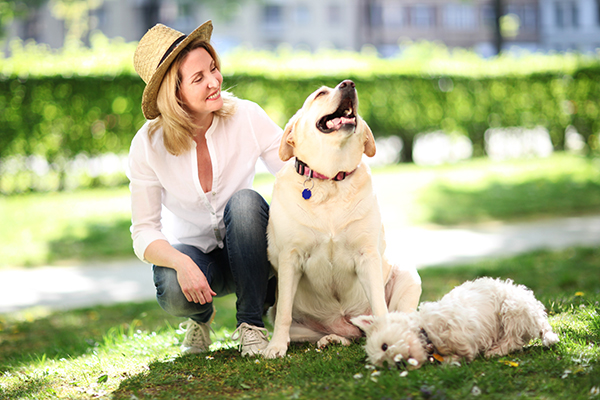![]()
Blog @ SunTech
Advice from the BP Measurement Experts
3 Ways to Better Care for Senior Animals

As beloved pets age, it can be difficult to know how their health care needs to change so we will be discussing 3 ways to better care for senior animals. After all, your cat or dog can’t tell you what he or she is feeling. To stay on top their health into old age, it is important to adjust their veterinary care as needed, including going to the vet more often. Here are a few tips for ensuring that your furry friend receives top notch senior health care.
1. Regular, Frequent Visits to the Vet
As a pet ages, the risk of certain diseases associated with age goes up. However, it won’t always be so obvious when your pet gets sick. Animals, especially cats, are experts are hiding their symptoms and not showing weakness. To be sure that you aren’t missing any conditions in your senior cat or dog, increase the number of veterinary visits from annually to twice a year1. These visits will allow the vet to assess your pet’s wellness by checking vital signs and possibly performing blood and urine tests
2. Get Educated About Common Conditions and Their Symptoms
It may not always be obvious, but there are often small signs that a pet owner can pick up on to tell them that their pet is not feeling well. For example, a cat that starts drinking more water than normal might be exhibiting symptoms of kidney disease. Decreased hair coat quality and changes in frequency of urination are other possible signs of kidney disease, while difficulty breathing and reluctance to exercise might signal possible heart disease in a pet2. Staying alert to changes in behavior can help a pet owner recognize when to contact a veterinarian.
3. Watch Your Pet’s Weight
An overweight pet has a higher risk of health problems2, so be sure to control your pet’s diet. Your vet may recommend one of the many different pet food options that are available for senior animals. Weight loss can also be tied to an underlying disease, especially in cats. Possible causes of weight loss in cats include dental problems, chronic renal disease, or hyperthyroidism3. This is another reason to make regular trips to the vet, since your vet will keep a record of your pet’s weight and will be able to monitor any changes.
- http://pets.webmd.com/features/your-pet-veterinarian#1
- https://www.avma.org/public/PetCare/Pages/Caring-for-an-Older-Pet-FAQs.aspx
- http://veterinarycalendar.dvm360.com/skinny-old-cats-why-some-senior-cats-lose-weight-what-s-going-sponsored-purina-veterinary-diets?pageID=1
Interested in getting more SunTech news, product info, as well as
tips, tricks, and insights from BP experts?
Sign up to get fresh content delivered direct to your inbox.


